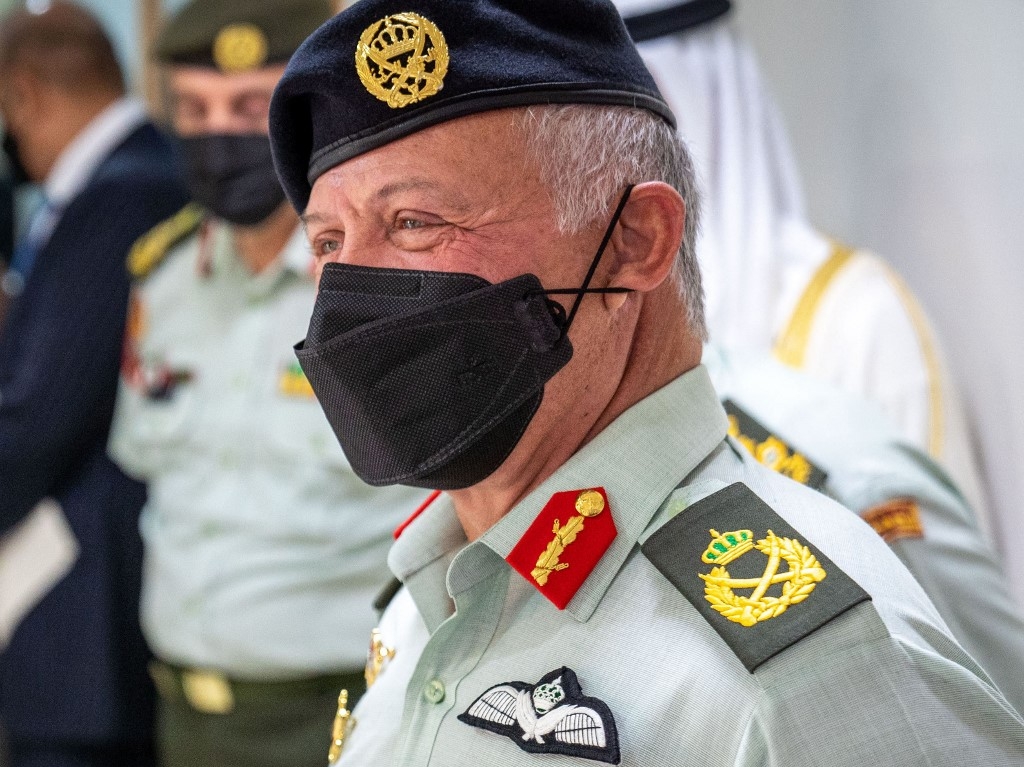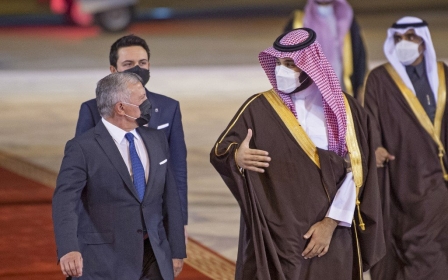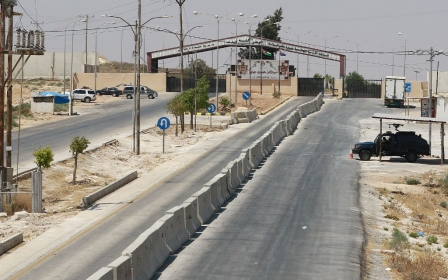Jordan's Abdullah receives first call from Syria's Assad since start of conflict

Jordan's King Abdullah II received a phone call from Syrian President Bashar al-Assad in what officials said was the first such communication since the start of the conflict in Syria a decade ago.
The conversation, announced by the royal palace on Sunday, was the latest step in a recent normalisation of ties between leaders who had long been on opposing sides in Syria's civil war, with Jordan supporting Syrian western-backed rebels seeking to drive Assad from power.
New MEE newsletter: Jerusalem Dispatch
Sign up to get the latest insights and analysis on Israel-Palestine, alongside Turkey Unpacked and other MEE newsletters
"They discussed relations between the two brotherly countries and ways of enhancing cooperation," the Jordanian palace statement said.
King Abdullah II told Assad his country supported the territorial integrity of its northern neighbour and efforts to preserve its "stability and sovereignty," the palace statement said.
The king had called for Assad to step down after the Syrian leader's bloody crackdown on peaceful pro-democracy protests at the start of the conflict in 2011 and Jordan became a conduit for western and Arab weapon supplies to forces trying to oust Assad.
The staunch US ally has, however, in the last few months accelerated steps to normalise ties with Syria, and nearly two weeks ago received the Syrian defence minister in a rare visit to coordinate cross-border security.
Changing tides
King Abdullah II, who said in an interview with CNN in July that Assad was there to stay, has been pressing Washington for months to engage Syria and Russia, saying this is needed to wean Syria away from Iran, officials say.
Abdullah, who met Russian President Vladimir Putin in August, hopes Russia will also rein in the growing presence of pro-Iranian militias along the Syrian border with Jordan, officials add.
'Changing the regime is no longer valid... Syrian authorities have spread their sovereignty throughout their country'
- Khaled Shneikat, analyst
Jordan last week fully reopened a border crossing with Syria to boost investment and trade that suffered during the decade-old conflict.
"Jordan and the US understand that a realistic look at the political scene requires an understanding that the idea of changing the regime is no longer valid now that Syrian authorities have spread their sovereignty throughout their country,” Khaled Shneikat, the former president of the Jordanian Society for Political Sciences, told MEE earlier this week.
Jordan, which hosts 1.3 million Syrian refugees, has been economically hurt by the cut in ties with Syria and the closure of the borders. Jordan's trade balance with Syria dropped from $615m in 2010 to $94m in 2020, according to official Jordanian statistics.
"Jordan and a number of western countries see that stability in Syria is a priority over the presence of military groups causing problems," Shneikat said.
Middle East Eye delivers independent and unrivalled coverage and analysis of the Middle East, North Africa and beyond. To learn more about republishing this content and the associated fees, please fill out this form. More about MEE can be found here.





